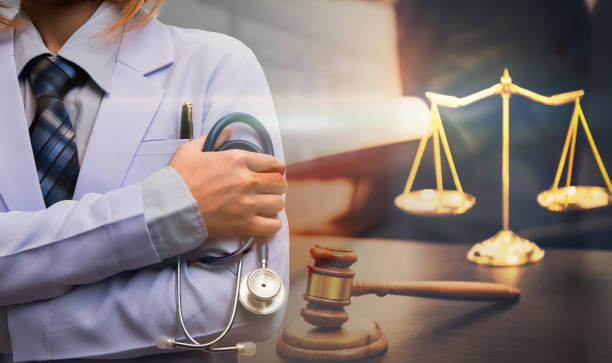The courtroom is no longer a place where only legal arguments hold sway. Clinical knowledge now cuts straight into the marrow of high-stakes litigation. Complex disputes over injury, malpractice, and product safety demand precision that only medical expertise can deliver. Those who underestimate the influence of an authoritative medical voice risk surrendering the narrative before the trial even settles into rhythm. The following sections strip away platitudes and focus on where, why, and how medical testimony can decisively tilt the balance.
Recognizing When to Engage a Medical Expert Witness
Some cases collapse without clinical insight. Medical malpractice claims can dissolve under scrutiny if the plaintiff’s injuries are not explained with surgical clarity. Personal injury suits often hinge on the credibility of diagnostic interpretation. Product liability battles may turn on whether a defect can be scientifically linked to a physiological harm. Strategic attorneys know timing is everything. Engaging a medical authority before discovery shapes the evidence map. Attorneys often hire a physician expert witness to clarify complex clinical issues for judges and juries. Delay here is costly. Early consultation transforms guesswork into grounded strategy, shrinking the space for opposing counsel to twist facts into fiction.
Physician Witness
Credentials matter more than charisma. A physician witness must bring unimpeachable qualifications into the courtroom: board certification in a relevant specialty, years of direct clinical practice, and a history of teaching or publishing in respected journals. Experience in real operating rooms or emergency wards anchors testimony in hard reality. But technical mastery alone is insufficient. The best physician witnesses strip dense medical language into sharp, comprehensible statements without betraying nuance. Judges and jurors respect expertise that never condescends. Citing the witness’s concrete achievements, not vague descriptors, builds a fortress of credibility that even aggressive cross-examination struggles to breach.
Medical Testimony
Medical testimony is a battlefield riddled with procedural mines. Daubert and Frye standards loom, ready to disqualify shaky methodology. Cross-examination can turn even seasoned professionals into hesitant observers if unprepared. Admissibility disputes drain momentum and distract from core arguments. A strong medical expert witness rehearses relentlessly, often with mock testimony simulating hostile questioning. Consolidating peer-reviewed studies into coherent talking points arms them against semantic traps. Remaining calm as opposing counsel sharpens their attack is not optional. It is survival. The witness who controls pacing, language, and composure wields more influence than any exhibit.
Healthcare Expert Witness
Credibility survives or dies on transparency. A healthcare expert witness must document findings with meticulous precision and maintain consistency across all disclosures. An unassailable methodology is more persuasive than any rhetorical flourish. Conflicting literature will inevitably surface. A credible witness acknowledges it, frames the difference, and keeps the argument anchored in verifiable data. Litigation hold notices are not nuisances to be ignored; they are warnings to safeguard every note, every scan, every report. Impartiality is currency in court. Spend it wisely, and avoid even the appearance of advocacy masquerading as science.
Expert Witness Strategy
Expert insight is not ornamental. A decisive report shapes deposition questions, crafts motion arguments, and reframes settlement leverage. Watch how a skilled attorney aligns with the expert to refine interpretations until they speak the same litigation dialect. Testimony must be sculpted differently for a jury than for a judge in a bench trial. Knowing the audience shifts tone, pacing, and emphasis. If done properly, expert and counsel present unified, precise, and persuasive narratives that constrict the room for opposing evidence to breathe.
Future of Medical Witnesses
Medical witnesses will work across platforms their predecessors never imagined. Tele-depositions strip away geographic constraints while AI scans vast datasets for corroborating evidence in minutes. Expect more interdisciplinary panels bringing varied clinical angles to a single case. Medical standards will not sit still. The courtroom will evolve with them, demanding adaptability from every witness who takes the stand. Certification processes will tighten and precedent will reshape admissibility rosters. Experts who track these changes will avoid obsolescence, while those who ignore them risk irrelevance in a faster, leaner litigation landscape.
Elevating Case Outcomes with Medical Clarity The value of medical expert testimony is not theoretical. It can push juries toward decisive verdicts and move stubborn parties toward settlement. Smart litigators do not relegate these professionals to side roles. They stitch clinical authority right into the core of the argument. Medicine and law are not siloed worlds anymore; they are interdependent engines of justice. Ignore that synergy, and you are already losing. Embrace it, and watch your case take shape with disciplined clarity.

